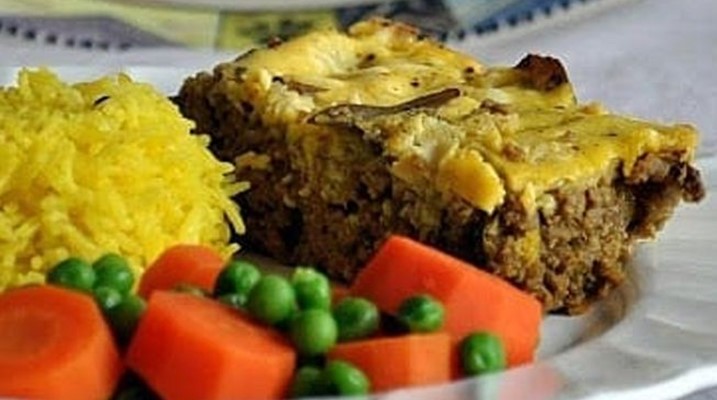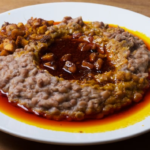Cape Malay cuisine, a fusion of African, European, and Asian influences, is known for its aromatic spices, bold flavors, and vibrant dishes. One such culinary gem is Cape Malay Pickled Fish, a traditional South African dish that tantalizes the taste buds with its unique combination of spicy and tangy flavors. This beloved delicacy has deep roots in Cape Town’s rich cultural heritage and continues to be cherished by locals and visitors alike.
Cape Malay Pickled Fish is a dish that reflects the diverse cultural history of the Cape Malay community. Originally introduced by Indonesian and Malaysian slaves who settled in Cape Town during the 17th and 18th centuries, the dish has evolved over time to incorporate local ingredients and flavors. It is traditionally prepared during the Easter season, with many families passing down their treasured recipes from generation to generation.
At the heart of Cape Malay Pickled Fish is the fish itself, usually a firm white fish such as yellowtail or snoek. The fish is typically filleted and then marinated in a fragrant blend of spices, including turmeric, ginger, garlic, coriander, and cinnamon. This spice mixture not only adds depth and complexity to the dish but also gives it a vibrant yellow color.
After marinating for a few hours or overnight, the fish is lightly dusted with flour and pan-fried until golden brown. This step helps to seal in the flavors and adds a delightful crispy texture to the fish. Once fried, the fish is layered in a dish along with a medley of onions, bay leaves, and sometimes sliced lemons for an extra burst of tanginess.
The true star of Cape Malay Pickled Fish is the aromatic pickling sauce that infuses the dish with its distinctive flavors. The sauce is made from a combination of vinegar, sugar, water, and the leftover marinade from frying the fish. This mixture is brought to a simmer, allowing the flavors to meld together and the fish to gently cook in the tangy liquid.
The pickling process is what sets Cape Malay Pickled Fish apart from other fish dishes. The fish and sauce are left to marinate for at least a day, allowing the flavors to intensify and the fish to absorb the tangy and spicy notes of the sauce. This pickling method creates a unique balance of flavors, where the tanginess of the vinegar is beautifully complemented by the aromatic spices.
Cape Malay Pickled Fish is typically served cold, allowing the flavors to fully develop and meld together. It is often enjoyed as part of a traditional Easter feast or as a light summer meal. The tangy and spicy flavors of the pickling sauce create a refreshing and satisfying dish, perfect for a hot day or as an accompaniment to other Cape Malay delicacies.
Beyond its culinary appeal, Cape Malay Pickled Fish holds cultural significance in South Africa. It symbolizes the fusion of cultures and the resilience of the Cape Malay community. The dish is a testament to the creativity and adaptability of a community that has preserved its heritage through its delicious cuisine.
In conclusion, Cape Malay Pickled Fish is a true culinary gem that represents the rich cultural heritage of Cape Town’s Malay community. Its spicy and tangy flavors, derived from a blend of aromatic spices and the pickling process, create a truly unique and delightful eating experience. Whether enjoyed as part of a festive meal or on a sunny day, Cape Malay Pickled Fish is a dish that showcases the diverse and vibrant flavors of South African cuisine. So, if you have the opportunity, savor the bold and tantalizing flavors of this beloved Cape Malay delicacy.








